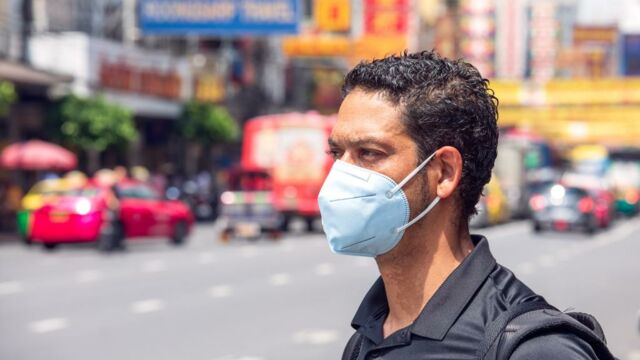It's official, Freedom Day 19 July is on track and soon enough, we won't be forced to wear masks or social distance anymore. With the vaccination program well underway, politicians are pushing to a return back to 'normal' as soon and safely as possible.
Discover our latest podcast
While it may make sense to not have to wear a mask while taking a stroll down a very empty street, opinions differ as to whether or not we should keep wearing masks on public transport and in shops, surrounded by dozens of other people.
And with those questions arise another concern: why even bother getting jabbed if you can't finally strip yourself free of the face mask?
1 in 20 people is still contagious after the first dose
According to a CNews report, Tom Frieden, an American infectious diseases professor turned CEO of Resolve to Save Lives (a global public health initiative), revealed that one out of every twenty people who received the vaccine wasn't automatically protected after getting the first dose.
Prof. Preeti Malani, chief health officer at the University of Michigan shared similar information. She told the Tampa Bay Times:
A person vaccinated on New Year’s Day won’t be fully protected until Valentine’s Day.
This factoid is reason enough for health authorities to continue to not only recommend the use of face masks, but make it mandatory:
Masks and social distancing will need to continue into the foreseeable future—until we have some level of herd immunity.
We don’t yet know if the vaccine protects against infection, or only against illness
Tom Frieden also emphasised to a Tampa Bay Times reporter that, so far, no one knows whether COVID-19 vaccines are an effective barrier against infection or the disease itself:
We don’t yet know if the vaccine protects against infection, or only against illness. In other words, a vaccinated person might still be able to spread the virus, even if they don’t feel sick.
A quick medical terminology reminder: infection is caused by an infectious pathogen—COVID-19 in this case,—and 'disease' describes how it makes you feel, in other words, the symptoms.
Yet another great argument for the use of face masks.
Are people who have allergies also at risk?
Due to their contents, COVID-19 vaccines aren't a suitable prophylactic for everyone. In fact, many people may be allergic to them and will not be able to get the shot. For people who experience side effects after receiving the first dose of the vaccine, treatment will be stopped immediately.
So, the TL;DR on this question is that we should all continue to take preventative measures and wear a face mask.















